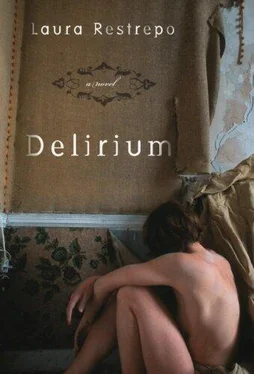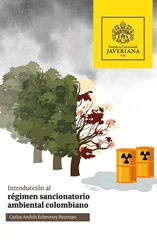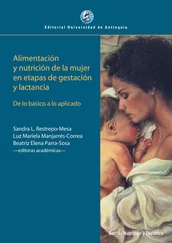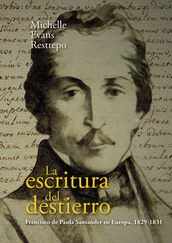Blasting along full fucking throttle in that Renault 9 we blew through stop signs and red lights, showing off our alpha-male status by tossing coins at the prostitutes on the corners and parking at the Icy Cream, wild-haired and triumphant as young cannibals, to order hot dogs and malteds from the car, and how could I have suspected, recently arrived from the provinces and living in a dark little apartment in the respectable neighborhood of San Luis Bertrand, tell me, Agustina doll, how was I to know that there existed such a thing as a vanilla malted, that glorious invention, and that if you asked for it over the intercom they brought it to you in the car. The albums that Joaco had sent to him from New York, and the new smell of his Renault 9, and the golden freedom of boys without a license whizzing along the Northbound Highway, it was all too much for me, my heart beat with a strange, wild anxiety, and all I could do was repeat to myself, Someday this will all be mine, mine, mine, and meanwhile they sang Jesterdei by the Beekles and also the Sowns of Seilens by Simonan Garfoonkel, always cursing Simonan for having stolen the song from the Indians of Latin America, ending with the ultimate apocalyptic explosion, the cosmic orgasm that was Satisfackchon by the Roleen, AICANGUET-NO! SATISFACK-CHON! Those words became my battle cry, my wish, my mantra; my credo was Anaitrai! my secret Anaitrai! my magic spell Anaitrai! Go on, Joaco, tell me what Anaitrai means, what a powerful, amazing fucking word, but he was very conscious of the superiority that his command of English gave him over us and was happy to leave me hanging, It means what it means, he declared pompously, and then he sang alone, with his perfect accent, I can’t get no satisfaction ‘cause I try, and I try, and I try, and then I asked again, practically dying, Come on, man, don’t be a jerk, tell me what Anaitrai means, tell me what Aicanguet-no is or I’ll bust your face, but he, unyielding and remote, knew exactly what to say to put me in my place, Don’t beg, McAlister, you can only understand if you’re meant to understand it.
Of course I invented my own desperate tricks for social survival, like the time I discovered a Lacoste shirt among my father’s old clothes, worn out and faded from use and too big for me, but that didn’t matter, nothing could dim the glory of my discovery and with fingernail scissors I set myself the task of detaching the little alligator logo, and from then on I went to the trouble of sewing it each day to the shirt I was going to wear, you laugh, Agustina princess, and I’m laughing, too, but you have no idea how going around with that Lacoste alligator on my chest helped me have confidence in myself and become the person I am today.
Through the process of my systematic spying on that world of yours I came to realize the particular skill that I had and your brother Joaco lacked, and it was at your house and the Boys School that what I’ll call the divine paradox was revealed to me, the lowly boy from the provinces with the mother in house-slippers, the cramped apartment in San Luis Bertrand, and the crocheted doily on the television: I knew how to make money, princess, it was as easy for me as breathing, while your brother, the son of rich men and the grandson of rich men, himself raised with money, had lost the knack, and my insight was to understand early on that the Joacos of this world weren’t going to have anything but what they had inherited, and that it meant something when people here say, “Great-grandfather a mule driver, grandfather lord of the manor, son a man of leisure, grandson a beggar,” in other words, there’s a slow spiral downward, Agustina princess, with past splendor gradually losing its luster without anyone noticing and the original fortune dwindling until all that’s left are the mannerisms, the pomp, the sense of superiority, the grand gestures, the alligator on the Lacoste shirt conspicuous on the chest. Whereas I, who came from nothing, was acquiring a talent, Agustina darling, a skill born of necessity and despair: the gift of making money, cold hard cash.
But I was still lacking the most important thing, Agustina angel, the truly important thing amid all that lesser detail, and that was coming to my friend Joaco’s house and finding you there, doing chores with your mother, because then a sigh of truth rose from the very depths of my being, bursting from my chest, Oh, Mrs. Londoño, yugotta lobleedotta! Because year after year, growing up alongside us but out of reach, there you were, Agustina my love, Joaco’s incredibly beautiful sister, the farthest and strangest star, so slender and white, always lost in your own head like someone hiding with the junk in the attic, you were the gold medal, the grand prix reserved for the best of us, the only trophy that your brother Joaco could never snatch, because he might be the richest and get the best grades and wear name-brand clothes, he might be the shit at tennis and waterskiing, the one with the spring vacations in Paris and the eternal tan, but there was one thing your brother Joaco couldn’t have, Agustina angel, and that was you.
The second time I saw you was in the dining room of your house in La Cabrera, which to me seemed like a sultan’s palace, and there you were making little towers of cookies with butter and jam, Joaco and me at one end of the table and you at the other end alone under the big crystal chandelier absorbed in your towers, so little, so transparent, with your huge black eyes and your insanely long hair, your hair was so long, Agustina baby! Back then I think it almost reached the floor, and when I tore my eyes away from you at last, I looked around and realized that this room contained all the elements of my happiness, what I mean is that just then something clicked in my head and I knew that everything I needed to be happy was right there, those too-high ceilings, like they were meant for giants not humans, that chandelier of crystal prisms that sent bits of rainbow dancing over the white tablecloth, those vases so crammed with roses that it looked as if a whole rose garden must have been cut to fill them, that porcelain as delicate as eggshells, those heavy knives and forks that were nothing like the light, tinny utensils we used in San Luis.
They’re silver, you shouted at me from one end of the table to the other and that was the first thing your mouth ever said to me, your mouth with its thin lips and perfect teeth. I’m not kidding when I say that I understood more things that day than you’d expect of the twelve- or thirteen-year-old boy I was then; for example I took careful note of your teeth, because thanks to orthodontia, yours were as perfect as your brothers’, and that same afternoon, snooping around in your bathrooms and trying to find out what this world was made of, this world that was so different from mine and that was driving me crazy with wanting, I found out that your family didn’t brush their teeth with toothbrushes like other mortals but with a gringo device called a Water Pik, and I came up with the plan: to begin to save money by selling pictures of naked girls at school, first to buy a Water Pik and then to have my teeth fixed. And that’s how the world works, Agustina princess, I was precocious enough to realize from an early age that you don’t get anywhere with yellow, crooked, rotten teeth, while perfect smiles like the Londoño children’s smiles and the one I bought for myself later were worth as much as or more than a college education.
Of course it was also a revelation to me that the food served by two maids dressed perfectly for the part on those eggshell dishes at the table for twelve at your parents’ house, a table that by the way is almost identical to the one I have today in my own apartment, that food, as I was saying, the chocolate with corn-flour buns, the cheese rolls, and the cream cookies, was exactly the same as the food my mother served me on our unbreakable plastic Melmac dishes in our living-dining room in San Luis Bertrand; that detail amused me, Agustina princess, it amused me to see that although you called it tea and we called it a snack, at five in the afternoon the two families served the same down-home food, the very same cheese rolls in the heart of Bogotá’s most fashionable neighborhood as in San Luis Bertrand, and from that I deduced that the unbridgeable gap between your world and mine was only a matter of appearances and surface polish, which amused me but also encouraged me to fight for what I wanted.
Читать дальше












